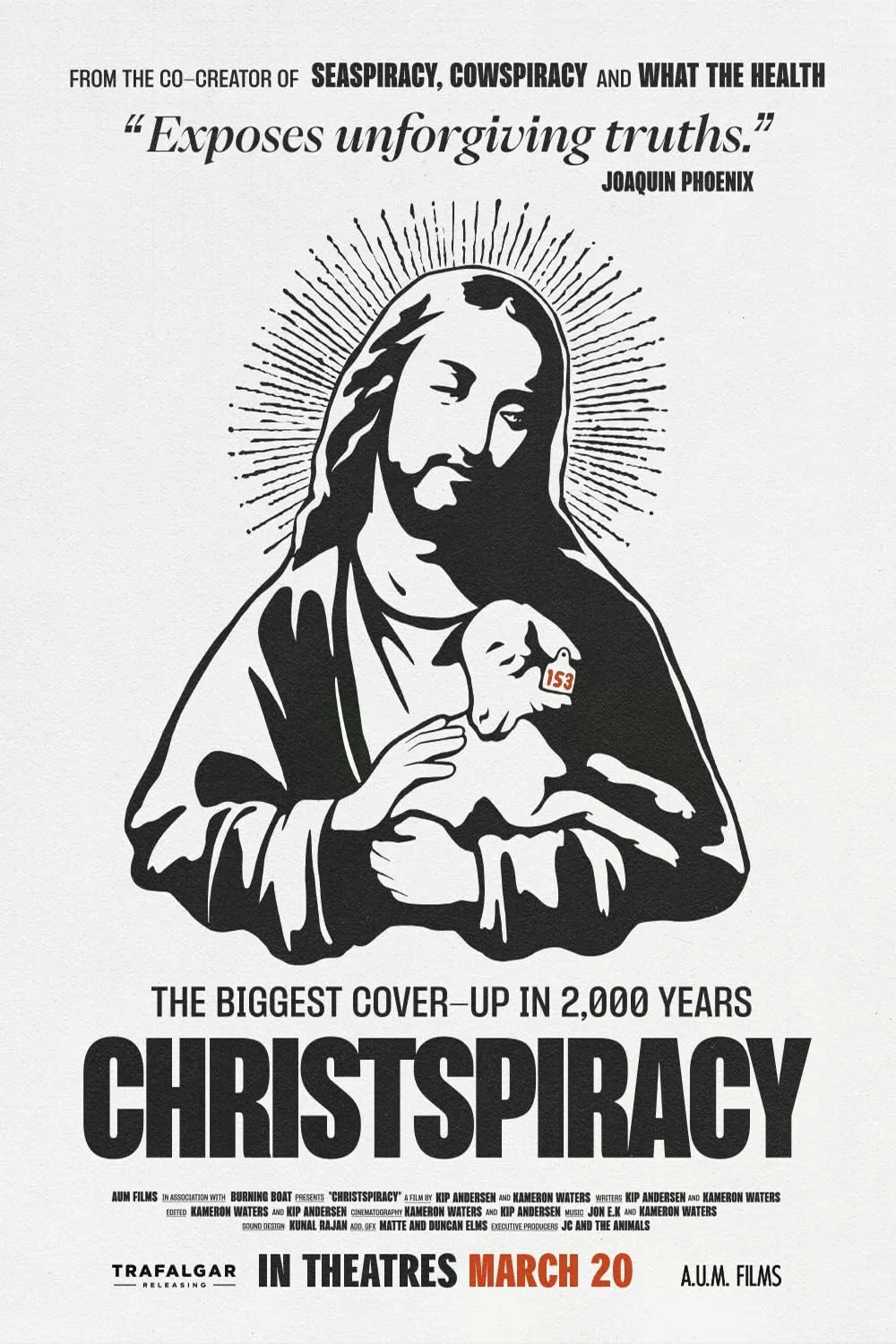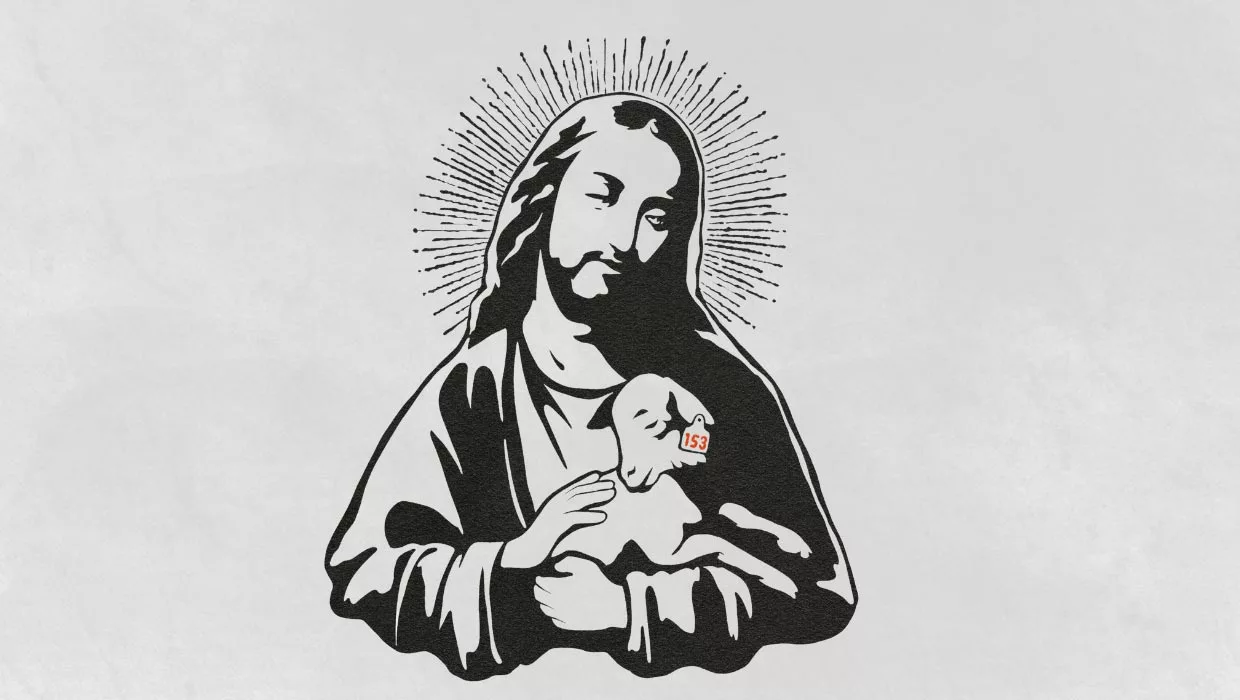Kip Andersen and Kameron Waters are no strangers to tackling controversial issues through documentary filmmaking. Their past collaborations, Cowspiracy and Seaspiracy, exposed troubling ties between industry and health or the environment. Now, they’ve set out once again, this time exploring spirituality and its relationship with our food choices.
At a Q&A, Waters asked Andersen an intriguing question: Is there any religious basis for killing animals? This launched the duo’s biggest cinematic venture yet. Over the course of the course of six years, they traveled across continents and immersed themselves in diverse faiths, seeking insights from experts worldwide. Christianity was naturally part of their examination, but they aimed to take a broad view, inquiring into traditions from Hinduism to Islam.
By confronting difficult topics within various spiritual beliefs, their goal was to uncover how different communities answer that difficult query: can taking animal life ever be considered sacred? It would be a journey that challenged preconceptions and sparked lively debate. Now, through Christspiracy, audiences can experience this thoughtful examination and come to their own understandings.
Christspiracy’s Search for Spiritual Answers
This thought-provoking documentary sets out to explore challenging questions about faith and food choices. As one part of its wide-ranging examination, it delves into Christianity and how the religion addresses humanity’s relationship with animals.
Directors Kip Andersen and Kameron Waters want to understand why interpretations of Jesus’s teachings seem at odds with mainstream Christian practices around meat. They interview pastors from various denominations, discovering a mix of openness but also surprising resistance to plant-based living. Some remarks hint at financial links between churches and agribusiness.
Seeking clarity, the filmmakers travel from the US to the Holy Land itself. There, they gain new insights from theologians and historians. One perplexing finding is how killing methods in kosher and halal rituals still involve animal suffering, contrary to ideas of compassion. These kinds of revelations clearly give the directors food for thought.
Most startling of all, Andersen and Waters say their research unearthed “the biggest cover-up in 2,000 years” around Christ’s authentic message. Through conversations with biblical scholars and archaeologists, they build what they see as an alternate account of Jesus’s true teachings on food. Was he really advocating vegetarianism?
By confronting difficult topics within Christianity and probing its ties to the meat industry, Christspiracy aims to spark discussion. Its quest takes viewers on an intellectual adventure, prompting us to re-examine long-held assumptions from a variety of eye-opening angles. For many, this film could open new pathways for spiritual and ethical growth.
Spiritual Traditions Through a New Lens
This thought-provoking documentary sets an ambitious scope by casting its gaze beyond just one faith. Recognizing that humanity’s relationship with animals touches people of all beliefs, the film branches out in its search for answers.
Through their extensive travels, the directors explore Hinduism, Islam, Buddhism, and more. In India, once a majority-Hindu nation that’s now a major exporter of beef, their conversations uncover complex layers. They also visit scholars in Muslim-majority countries to discuss interpretations of scripture.
Some of their most fascinating discussions may have come from monasteries across Asia. Listening to Buddhist monks reconcile teachings of nonviolence with cultural norms like eating meat opens intriguing perspectives. Their visits find both similarities and differences in how various spiritual traditions view our place in the natural world.
By shining a light on an array of religions from around the globe, the filmmakers broaden understanding. Viewers see that questions of ethics and sustainability transcend any single faith. Contradictions appear not just in Christianity but also in others’ treatment of animals.
This may be the documentary’s most valuable contribution: encouraging us to re-examine beliefs we take for granted with an open and inquisitive spirit. In a divided world, thoughtful explorations of what we share in common just might help build bridges.
Traveling the Path to Discovery
Kip Andersen and Kameron Waters are no strangers to tackling thought-provoking topics. Their past documentaries delving into issues around health, the environment, and animal rights surely prepared them well for this ambitious project.

Both clearly care deeply about spreading knowledge about living conscientiously. Kip has explored the impact of diet for over a decade now. Kameron’s journey to questioning long-held beliefs also shows how openness and reflection can lead anywhere. Seeing life through a new lens, he felt called to call Kip to begin this venture.
Crossing continents, the pair sought a diversity of expert perspectives. From theologians to activists, all offered nuanced insight. Though conversations couldn’t cover every view, their open forum shed light on this divisive subject from new angles.
To join such distinguished figures, our hosts took an unconventional path of their own. Some criticize inserting themselves in the story. But by walking in others’ shoes—like experiencing slaughter, as Kameron does—could connections form that advance understanding?
Not all answers emerged straightforwardly, as any earnest search reveals life’s messiness. Yet beneath divergences lay common ground—from different voices emerged shared care for our global family, human and animal. Perhaps if we listen with such good faith, answers may arise where once there were only questions. Their ongoing discussions could guide more people to think and walk in one another’s footsteps.
Questioning Faith and Tradition
This film takes a close look at some controversial topics. Its discussions of Jesus and early Christian teachings especially got me thinking.
Kip and Kameron cite sources connecting Christ to vegetarianism. But their interpretations rely heavily on disputed texts. And convincing scholars about these intricate debates remains difficult.
Questioning long-held beliefs about religious figures makes sense, but overstating evidence risks losing open-minded viewers. Subtler discussions exploring multiple views might have flowed better.
Claiming a “cover-up” was also ambitious. While profits may influence some churches, Christianity’s dietary guidance has evolved complexly over centuries. No doubt political and economic factors played roles, but simplistic theories prove unsatisfying.
Connecting disparate groups in conspiracy seemed like an unneeded stretch too. Instead, acknowledging uncertainties and contradictions directly could have strengthened their case.
Still, highlighting religion’s role in our food choices sparked valuable reflection. If traditions sometimes stray from their founding messages, understanding why and finding balanced paths ahead matter greatly.
With deeper dives into context and counterpoints, this film could have better facilitated such discussion. But simply raising probing questions around faith, ethics, and history may in itself prove worthwhile for some.
Questioning Methods
This film packs in information swiftly. Bits of text zoom by as talking heads share facts and beliefs. Kip and Kameron work tirelessly to answer their question, but some choices leave me wondering.
Portraying opposition where there may be none seems unnecessary. Claiming intrigue just adds layers between truth and audience. We all want to make an impact, yet fabricated stakes undermine credibility.
Selecting interview clips and statistics needs care too. Facts deserve context to guide understandings, not misleadings. Pseudoscience obscures more than clarifies for many listeners like myself.
Seeking spirituality’s role in ethics deserves open dialogue, not dismissal. Faith and tradition deserve respect alongside reform. Gentler discussions exploring views respectfully may affect real change where accusation fails.
Overall, the format risks muddying waters when clarity serves its purpose. Curiosity, not crusading, opens minds. Their question merits thoughtful treatment, not manufactured mysteries. The method impacts the message greatly. Perhaps simplifying style could strengthen substance here.
Opinions on Ethics and Faith
Christspiracy delves into weighty matters deserving care. Its aim to examine relationships between spirituality, food, and lives lost seems sincere. Yet methods leave perspectives unfinished and questions unanswered.
By skimming many surfaces briskly, connections between belief and practice blur before clarity comes. Interview segments, stripped of context, isolate ideas alone rather than showcase their place in larger schemes. Contradictions perceived as conspiracies alarm where calm inquiry could convince.
The film raises valid points begging to be addressed. However, its focus on attacking instead of explaining hinders understanding others seek as well. No view holds complete truth; all contain learning if shared without scorn. A discussion this divisive demands patience, which many feel is denied.
Sincerity of purpose matters little if the end product sows confusion. Christspiracy hints at worthwhile discussions, but its delivery drowns out. Potential existed to inform, but priority lay elsewhere. As entertainment, its fireworks thrill, yet enlightenment requires gentler ignition of thoughtful sparks, not fiery polemics fanned to flames.
On ethics so intertwined with community, empathizing with others’ experiences proves pivotal. This film, for all its good intentions, overlooks the essential humanity at its heart. Another attempt could shine much light by first listening with humility to the shadows it illuminated.
The Review
Christspiracy
While its aims seem sincere, Christspiracy falls short of insight because of the substance it sacrifices for style. Exhibiting passion need not require abandoning care or balance, which is crucial on faith-laden ground. The film hints at thought-provoking corners, but its delivery declines to develop.
PROS
- Ambitious subject matter that addresses the relationship between spirituality and animal ethics
- Sincere intentions to explore important questions around religious teachings and practices
- High production values
CONS
- Reliance on conclusory assertions rather than substantive evidence
- Lack of meaningful contextualization of diverse religious views
- Polemical tone that prioritizes agenda over understanding different perspectives
- Fails to make a clear or coherent argument
















































